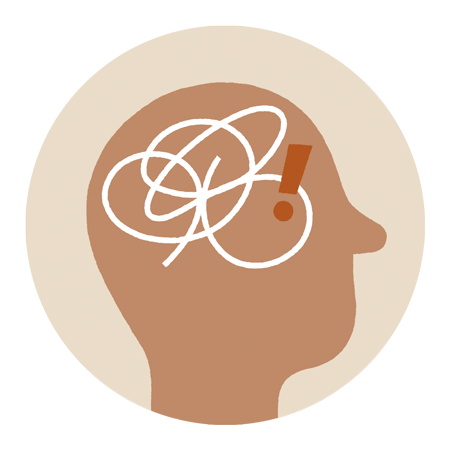What is depression?
Symptoms of anxiety and depression are the most common mental illnesses people come to treatment for. Many people will experience periods of anxiety or depression during their lifetime.
Conversational therapy has a particularly good effect on mild and moderate variants of anxiety and depression, which many of us will experience.
Download our app to book an appointment.
But what is a depression?
Depression is best characterized by feeling sad or depressed over a long period of time. Often, people who are depressed will also have felt that they no longer feel as interested in or find little pleasure in things that one is otherwise very fond of. For example, a baker, psychologist, nurse, plumber, financier or gymnast can quickly feel that the job , the hobby or sport you do, no longer evokes the same positive emotions and they also do not make as much sense as it normally would.
The WHO / World Health Organization estimates that around 5% of adults suffer from depression. This means that approximately 280 million people in the world are currently suffering from depression. In other words, depression is a relatively common disorder. And there are different degrees of it, from mild to moderate to severe forms of depression.
What are the typical symptoms of depression?
When you have been persistently depressed for a period of time, you can quickly notice that it can be heavier to get up in the morning and occasionally depression will lead to you staying at home.
Depression as a condition can contribute to influencing our feelings, thoughts and behavior or actions. Most often, the symptoms appear in a smooth transition and cause you to quickly feel that things are meaningless, that things that go wrong are your own fault, and that you are sometimes left with a difficult experience when you are social with others.
For many, depression can be experienced as so severe that they no longer appear as themselves. There are also many who use most of their energy to appear as normal as possible, by either hiding or putting a lid on it. It often goes beyond one's closest relationships.
When does depression start to become problematic?
During a depressive episode, one can therefore experience that it goes negatively beyond one's personal life, in relationships, in family life, boyfriend relationship, in the workplace or with studies. It can also go beyond other important areas of our lives. Most often, one considers depression to have become problematic when it begins to prevent one from doing things one should really be able to do. It can therefore be useful to seek help if you begin to see hints that it affects the important aspects of your life.

Treatment of depression
As a rule, treatment for depression begins with a survey of the factors and causes that may have led to the person becoming depressed.
After mapping, you use talk therapy where you work to process and change the factors that may have led to the depression. This can either be about changing negative mindsets, looking more closely at relationships or focusing on specific problems you are struggling with.
Get to know our therapists 🌻
We know how important it is with the right chemistry to get a the most out of a therapy session. We've talked to our therapists so you can get to know them better. We hope this makes it easier to find a psychologist who is right for you
Meet the therapists!
